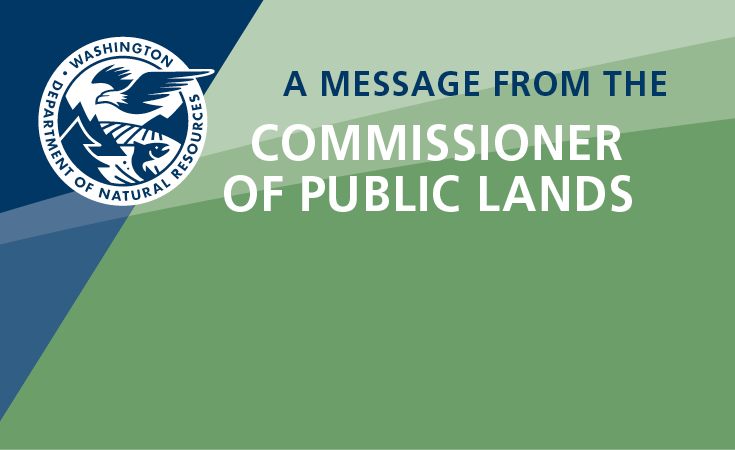Application Period Opens for Revamped DNR Trust Land Transfer Process
News Date:
August 2, 2023
The tool enables DNR to keep special places in public ownership while improving the financial performance of state trust lands
The Washington State Department of Natural Resources (DNR) has opened the application period for Trust Land Transfers this week for the first time since the Legislature passed laws to revitalize the conservation transaction process.
The Trust Land Transfer tool is designed to transfer lands that don’t produce expected amounts of revenue but provide important ecological values or public benefits. If funded by the Legislature, DNR will transfer lands put forward in this process to public agencies for conservation or recreation and replace them with lands better suited to generate money to support school construction and local governments.
“Trust Land Transfers are a vital tool to protect lands that provide high ecological values and public benefits while ensuring state trust lands can continue to generate revenue to support schools and critical local services for present and future generations,” said Commissioner of Public Lands Hilary Franz. “I am grateful for the Legislature approving the changes that will revolutionize this work, increasing the accessibility, transparency and usefulness of the tool to better serve the environment and the people of Washington state.”
The application period is open through September 30. DNR staff will then review applications, and a new advisory committee will rank them based on objective criteria, and submit a funding request to the Legislature to complete the transactions.
All applications require an agreement from a receiving agency to accept the transferred parcel and manage it indefinitely to enhance or preserve its ecological values and public benefits.
DNR generates more than $250 million each year through the management of trust lands, which are required to generate revenue to support schools, colleges, and critical local services across Washington state. That revenue comes from sustainable forest management, agricultural leases, clean energy leases, commercial real estate leases, and other business opportunities.
Revitalization of the Trust Land Transfer tool was a major project of the 2021 Trust Land Performance Initiative, which focused on identifying tools to address underperforming land assets. This effort, funded in part by the Legislature, is designed to make the tool more consistent, transparent, repeatable, and effective. The Trust Land Performance Initiative builds upon the findings of DNR’s 2021 Legislature-directed report titled, “Trust Land Performance Assessment Project: Charting a Course for the Future.”
Beneficiaries, tribes, industry, and conservation groups worked with DNR for years to reshape the tool, developing a new framework and creating a pilot project to test it out. One key feature is an improved analysis to determine whether it is in the best interests of the trust beneficiaries to transfer parcels proposed by applicants. In addition, a new advisory committee will score prospective Trust Land Transfer parcels according to five criteria – community involvement and support, ecological values, economic values, public benefits, and tribal support – and then the advisory committee will use these scores to prioritize the proposed transactions. Parcels will be transferred in priority order as funding allows.
As part of the Trust Land Transfer revitalization pilot project, the Legislature funded five transactions during this year’s session: Eglon in Kitsap County, Devils Lake in Jefferson County, Upper Dry Gulch in Chelan County, Chapman Lake in Spokane County, and West Tiger in King County. The transactions cost a combined $17.3 million and will move 4,425 acres from trust land into conservation management.
Since 1989, Trust Land Transfers have conserved nearly 126,000 acres, but only about 56,000 acres have been added back through the tool to support funding for K-12 school construction. Past funding required that 80 percent of the cost of the transfer be delivered directly to beneficiaries, making it impossible to do acre-for-acre replacements of lands moved out of revenue generation status and slowly shrinking the amount of land DNR can manage. The Legislature changed this requirement and others at DNR’s request during this past session to ensure the Department has the funding it needs to purchase productive replacement lands.
###
MEDIA CONTACT
Communications Manager
360-902-1000


